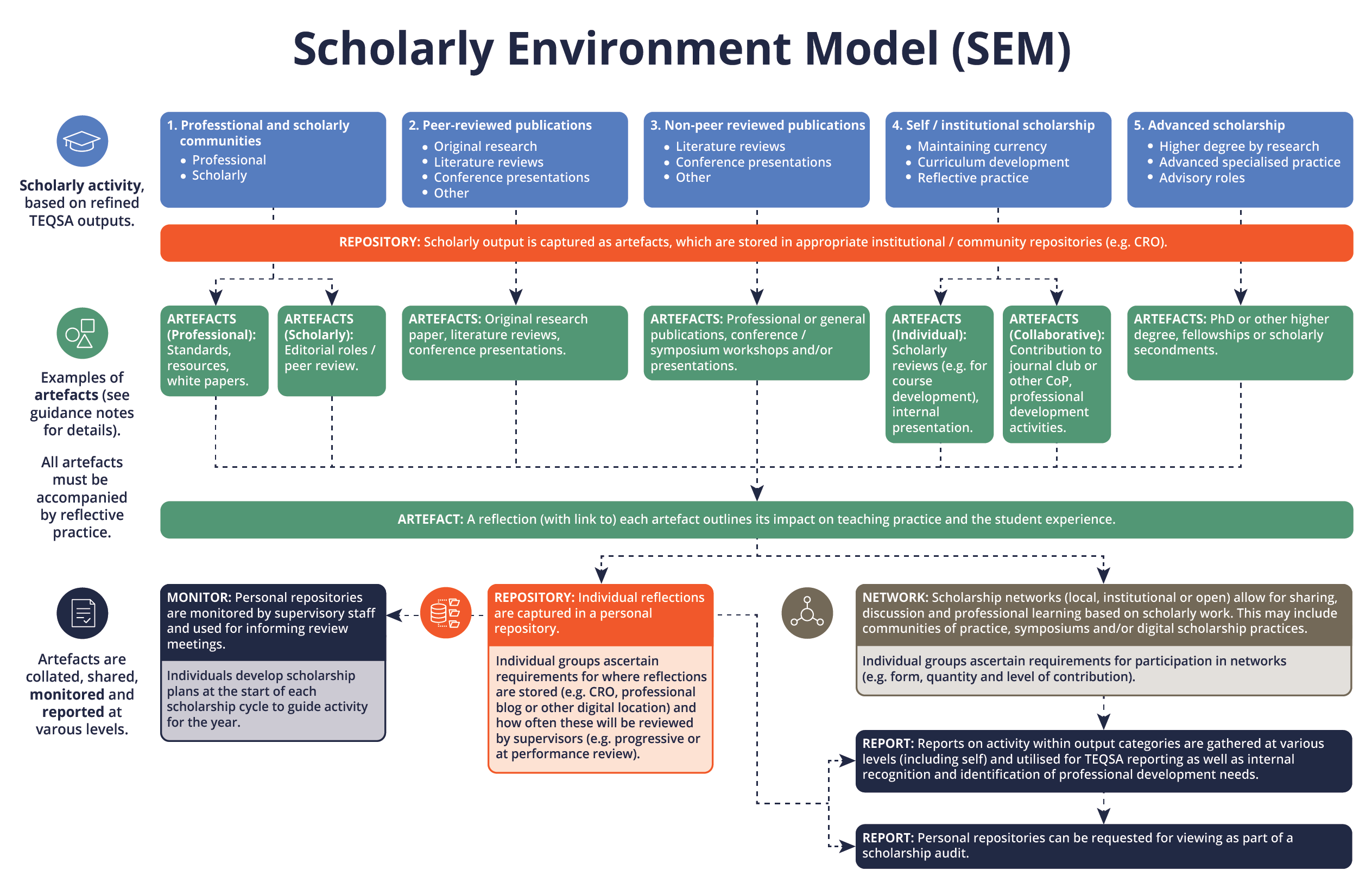The Scholarly Environment Model (SEM) draws from the TEQSA categories outlined in the TEQSA Scholarship Guidance note (V2.5, December 2018). It recognises:
- the different forms of scholarly activities
- the outputs that TEQSA might expect to see as evidence for the different forms of scholarly activities
- how networking opportunities could be used to help disseminate those outputs between academic staff
The SEM informs the learning plan and scholarly activities undertaken in the Scholarly Activity Framework.

You can also download a printable version of the Scholarly Environment Model.
Core concepts
There are five core aspects to the model.
- Output categories are shown in light blue at the top of the page, and represent a simplified version of the TEQSA outputs.
- Artefacts are shown in green and include examples of scholarly outputs for each category and reflections on how these outputs have impacted teaching practice.
- Repositories are shown in orange and include both personal and institutional/community spaces for storing artefacts.
- Monitoring and reporting are both shown in dark blue and reflect individual review by supervisors as part of the professional development cycle and more metric-driven reporting to meet the needs of TEQSA and continuous improvement.
- Networks are shown in brown and reflect a range of opportunities for sharing, discussion and professional learning based on scholarly outputs.
Categories and exemplar reflections
Professional and Scholarly Communities
These contributions should advance knowledge and/or practice. They may include contributions to discipline-based or learning and teaching professional bodies/communities of practice, such as:
- development of new standards
- knowledge resources or codes of practice
- contributions to scholarly communities, such as editorial roles or peer review.
Peer Reviewed Publications
These contributions must be peer reviewed, and can include:
- original research in a discipline or on teaching and learning practices
- literature reviews
- conference presentations.
Non-Peer Reviewed Publications
These contributions are made to non-peer reviewed publications or conferences, and can include:
- scholarly literature reviews
- presentations
- advanced professional development in a discipline or on teaching and learning practices.
Self/Institutional Scholarship
These contributions are to individual or collaborative (e.g. journal clubs, professional development activities) efforts to:
- remain abreast of developments in a field
- complete scholarly reviews of the current state of knowledge or teaching in a field to contribute to course/subject development.
Advanced Scholarship
This category focuses on advanced scholarship through higher level qualifications that lead to scholarly outputs, in particular:
- higher degrees by research
- undertaking specialised practice or scholarly secondments and/or formal advisory roles that may influence teaching activities.
